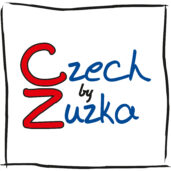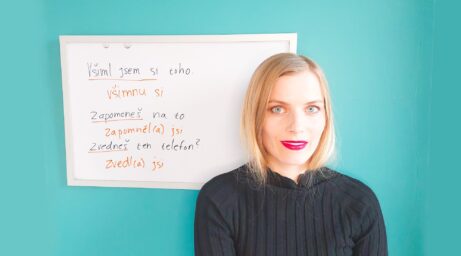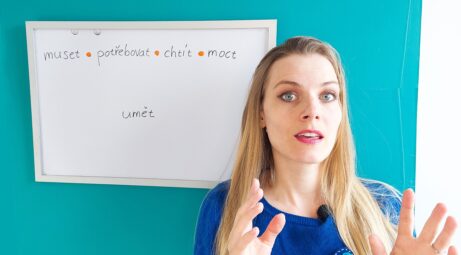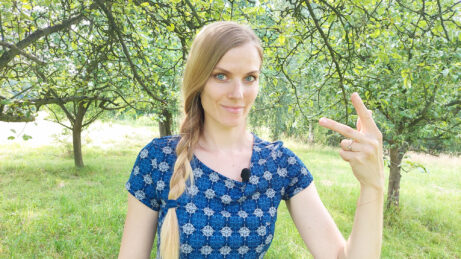
‚Time‘ in Czech. Understanding čas, doba, and období
Translating „time“ in Czech can be challenging since there are many possibilities. Today, we will take a look at phrases and common expressions with the words čas, doba and období. Jdeme na to!

1. Čas
Čas is the word a learner probably comes across early on. It usually refers to a shorter period of time, something that is possible to measure. We can often „own“ it (or not) or spend it doing a certain activity.

Mám čas. x Nemám čas.
Mám hodně/trochu/málo času.
Potřebuju čas na rozmyšlenou.
Už je čas (jít).
Čas vypršel.
Napiš mi přesný čas.
Není čas ztrácet čas.
Trávíš moc času u počítače!
Zkusím si na to udělat čas.
Je to jen otázka/otázkou času.
To byly časy!
Kde jsou ty časy, kdy jsme bydleli na koleji!
I have time. x I don’t have time.
I have a lot of/a little/little time.
I need time to think (about it).
It’s time (to go).
Time is up.
Write me the exact time.
There’s no time to waste time.
You spend too much time on the computer!
I’ll try to make time for it.
It’s only a matter of time.
Those were the times/days!
Where are the times when we lived in the dorm!
Collocations with čas
volný čas:
Ve volném čase chodím na procházky.
čas od času:
Čas od času chodím běhat.
časem:
Časem se to zlepší.
postupem času / po čase:
Po čase mi začal věřit.
nejvyšší čas:
Je nejvyšší čas zmizet.
na čase:
Už bylo na čase, abys zavolala!
free time:
In my free time, I go for walks.
from time to time:
From time to time, I go jogging.
with time:
It will get better with time.
after some time:
After a while, he started to trust me.
high time:
It’s high time to disappear.
about time:
It’s about time you called!
2. Doba
Doba can be translated as time, a period of time, an era, a season or a duration. It usually implies a more extended or specific period. Among the three words I am discussing, it is the most frequently used. It often functions as an adverbial phrase of time, indicating when something happened or how long it takes. Doba is commonly paired with an adjective or a pronoun to make the period more specific.
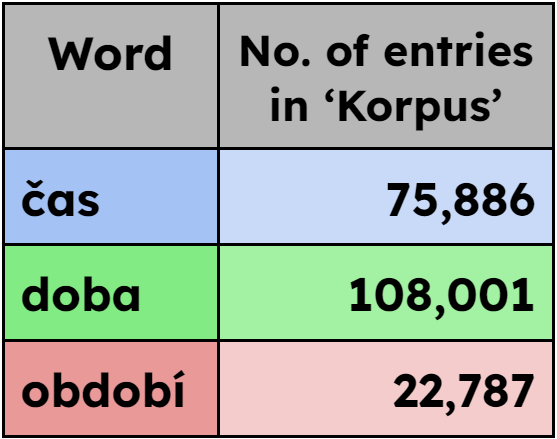
a) V poslední době / Poslední dobou všude chodím pozdě.
b) V dnešní době je to časté.
c) V té době ještě žil děda.
d) Nějakou dobu tady seděl.
e) Co jsi celou tu dobu dělal?
f) Pracuju od té doby, co jsi odjel.
g) Měla nudný život do té doby, než poznala Karla.
h) Je to největší umělec všech dob.
i) To je ale (dlouhá) doba!
j) Teď není vhodná doba.
(vhodný čas is possible, but less common)
a) Lately, I’ve been showing up late everywhere.
b) It is common these days.
c) Grandfather was still alive at that time.
d) He sat here for some time.
e) What were you doing all this time?
f) I have been working since you left.
g) She had a boring life until she met Karel.
h) He is the greatest artist of all time.
i) This is taking too long! / That’s a long time!
j) Now is not a good/appropriate time.
When you want to say ‚a long time‚, you can use the following: dlouhá doba/dlouhou dobu, dlouho, and some people also use dlouhý čas in writing, although that option is not too common (especially not in spoken form).
Známe se dlouho / dlouhou dobu. We have known each other for a long time.

Collocations with doba (often official terms)
pracovní doba
otevírací doba
zavírací doba
zkušební doba
doba určitá x doba neurčitá
dlouhá doba
krátká doba
also adverbs: dlouhodobě, krátkodobě
Tenhle lék můžete užívat jen krátkodobě.
doba kamenná, doba bronzová
moderní doba
working hours
opening hours
closing time
trial period
definite period/time x indefinite period
long time
short time
(for a) long-term, short-term
You can take this medicine only for a short time.
Stone Age, Bronze Age
modern era/times
3. Období
We can translate období as a period of time, term, stage or season. In a way, it is similar to doba because it actually contains that word: ob + doba + í. The prefix ob- in this case means ‚to surround‘, making období the time that surrounds „doba“, something around that time period. Období can also refer to a time (season) that typically repeats, such as the seasons of the year, or a phase in a person’s life that will pass.
Mám teď těžké období.
Nejhorší období mého života!
Teď mám zrovna takové období.
Tohle období puberty už má za sebou.
Měl období, kdy se vůbec neozval.
I’m going through a tough time right now.
The worst time of my life!
I’m going through this kind of period right now.
This period of puberty is already behind (him/her).
He had a period when he didn’t call at all.
Here is something interesting: If you say těžké období (difficult period in life), it implies that this period might pass sooner or later; it’s just a stage. On the other hand, těžká doba can be translated as ‚difficult times,‘ but not in a person’s life. It refers to challenging times in society or humanity in general, indicating that the times are or were tough but not necessarily suggesting that a change will come soon.

Collocations with období
roční období
Máme čtyři roční období: jaro, léto, podzim a zima.
období sucha
období dešťů
zkouškové období
Ozvu se ti až na konci zkouškového období.
volební období
season(s) of the year
We have four seasons: spring, summer, autumn, and winter.
dry season
rainy season
examination period
I will get back to you at the end of the exam period.
election period
As you can see, it might as well be better to memorize certain phrases and common expressions with čas, doba and období…
A tip for those curious about more examples!
Googling words is always an option (or nowadays, probably just using chatGPT). However, when I want to look up Czech words used in context, I go to the Czech National Corpus, specifically its application KonText. Simply type the word or phrase you want to see in sentences, and it will show you examples from books or magazines (from Czech authors or translated into Czech).
Exercise 1: Choose the correct option
1. ………… dospívání je ………… pro všechny.
a) Čas – náročný, b) Doba – náročná, c) Období – náročné
2. ………… nejvyšší ………… to změnit.
a) Byl – čas, b) Byla – doba, c) Bylo – období
3. Už aby ………… volební ………… skončilo!
a) ten – čas, b) ta – doba, c) to – období
4. Tys ……………… spala?
a) celý ten čas, b) celou tu dobu, c) celé to období
5. ……………… si na to zvykneš.
a) Časem, b) Dobou, c) V období
6. To je …………, než se připravíš!!
a) čas, b) doba, c) období
Exercise 2: Complete the missing words (among them: čas, doba and období)
1. We spend a lot of time together.
………………….. spolu ………………….. ……………………
2. Childhood is the best time of life.
Dětství je ………………….. ………………….. ……………………
3. He hasn’t been here for some time.
…………………. ………………….. tady ……………………
4. Recently, I have been feeling very motivated.
………………… …………… ……….. ……………… hodně motivovaný.

Solutions
1.
1. Období dospívání je náročné pro všechny.
2. Byl nejvyšší čas to změnit.
3. Už aby to volební období skončilo!
4. Tys celou tu dobu spala?
5. Časem si na to zvykneš.
6. To je doba, než se připravíš!!
Adolescence is challenging for everyone.
It was high time to change that.
I wish the election season was over!
Were you sleeping all this time?
You’ll get used to it with time.
You take so long to get ready!!
2.
1. We spend a lot of time together.
Trávíme spolu hodně času.
2. Childhood is the best time of life.
Dětství je nejlepší období života.
3. He hasn’t been here for some time.
Nějakou dobu tady nebyl.
4. Recently, I have been feeling very motivated.
V poslední době se cítím hodně motivovaný. / Poslední dobou se cítím hodně motivovaný.
Before you go…
Sometimes the word time is expressed in a completely different way. So before you leave, I want to show you a couple of useful phrases with ‚time‘ in English that do not use čas, doba or období.
What time is it?
Take your time.
Is this a bad time?
Kolik je hodin?
Nepospíchej (ty). / Nepospíchejte (vy).
Neruším? Nejdu/Nevolám nevhod?
